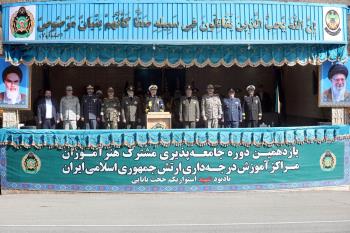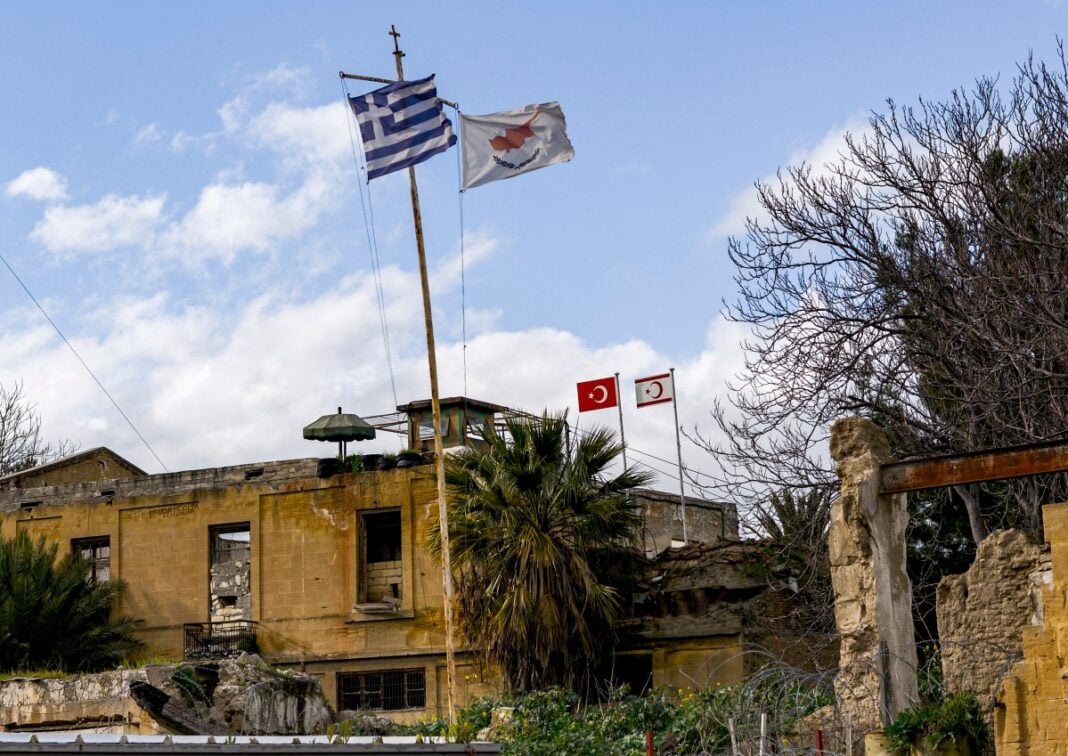Alwaght- Contrary to popular belief, the foreign relations of the government of the Turkish President Recep Tayyip Erdogan are not better than the disturbed economic and internal conditions. While Syria developments later last year gave Erdogan a new hope to see the doors to realization of long-held neo-Ottoman dreams open again, not only Syria has not turned into a gate of the Turkish influence return to the Arab world due to overflow of its crises, but also due to Turkey's complex economic challenges Erdogan now finds himself disillusioned, witnessing the unraveling of over a decade of investment in the Turkic World project.
In this relation, BBC Turkish service on Tuesday reported that Kazakhstan, Uzbekistan, and Turkmenistan in a meaningful move named ambassadors to Cyprus, showing a change in alignment of these countries with Ankara's political strategy towards Cyprus cause, something expected to deal a big blow to efforts of Ankara in recent years to present a picture of an alliance of Turkic World countries led by Turkey.
Kazakhstan was the first country to announce its decision to exchange ambassadors and reopen embassies with Cyprus in January. Uzbekistan then appointed its ambassador to Italy to serve in Cyprus in December 2024, and Turkmenistan designated its representative in Cyprus on March 31.
In fact, while the Turkish Cypriot authorities were keen to use the opportunity of the visit of the Organization of Turkic States (OTS) officials to Northern Cyprus to seek official recognition, by doing so, these countries have ruined all of Ankara’s efforts to strengthen the international legitimacy of its protectorate of Northern Cyprus.
In a joint statement of the EU-Central Asia Summit in the Uzbek capital, Samarkand, the three Central Asian countries explicitly endorsed UN Security Council resolutions 541 (1983) and 550 (1984), which condemn the declaration of the self-proclaimed Republic of Northern Cyprus and call on UN members not to recognize it.
The European Union and the Central Asian countries reaffirmed their firm commitment to United Nations Security Council Resolutions 541 and 550 and noted that the development of their relations is contingent on adherence to this principle.
Article 4 of the statement highlighted the resolve of the two sides to respect sovereignty and territorial integrity of all states in the international organizations and avoiding any measures that violate this principle.
The move by the three countries comes as the first informal conference on Cyprus in four years is due to be held. Despite efforts by Turkey and Turkish Cypriot leader Ersin Tatar to block the implementation of a UN plan to resume Cyprus talks, UN Secretary-General Antonio Guterres announced in Geneva on March 18 that the talks would be held in late July.
After the failure of the 2017 Crans-Montana summit, Ankara withdrew from the UN-sponsored Cyprus reunification talks and has since sought international recognition of Northern Cyprus, arguing that a negotiated two-state solution is the only valid basis for talks.
Cautious reaction to end of Turkic World dream
Met with severe reaction of the government of Northern Cyprus, a protectorate of Turkey and its strategic ally, the move by the three countries certainly marks an early end to the lofty dream of transforming Turkey into a influential power in Central Asia and Caucasus developments and securing a superior geopolitical and geoeconomic position in the region against rivals from China borders to the Black Sea through creation of a Turkic axis.
Given the strong stance of Northern Cyprus' Transport Minister and leader of the Rebirth Party, Erhan Arikli, who described the decision as a "deep wound" and called on Ankara to "take measures" against these countries, it can be said that the deeper wound was suffered by plans of Erdogan, who has so far been cautious about the measure.
Although Turkey has not officially taken a position on the change in policy of the three Central Asian republics towards Cyprus, there is no doubt that the establishment of direct diplomatic relations between the Turkish republics and Cyprus has been in the interest of closer relations with the European Union and has raised concerns in Ankara, as Mustafa Destici, the leader of the Grand Alliance Party that is an ally of the ruling party in Turkey, called the embassy openings in Cyprus "unacceptable". In this context, Turkey's limited reaction seems to be driven by an unwillingness to inflame new tensions with the EU.
Erdogan's dream of Turkic World rests on the foundation of the Organization of Turkic States, which itself was achieved as a result of the gradual progress of the summits of Turkic countries after the dissolution of the Soviet Union in 1991 with the participation of countries with linguistic ties to Turkey, namely Azerbaijan in the South Caucasus and Kazakhstan, Uzbekistan, Turkmenistan and Kyrgyzstan in Central Asia.
At the 9th summit of these countries held in Nakhchivan, Turkey, Azerbaijan, Kazakhstan and Kyrgyzstan signed the "Nakhchivan Agreement on the Establishment of the Cooperation Council of Turkic-Speaking States" on October 3, 2009 to institutionalize the process.
Then, at the 10th summit of this council on September 15-16, 2010, the "Cooperation Council of Turkic-Speaking States" was established and its name was changed to the "Organization of Turkic States (OTS)".
After this development, Turkey tried to take advantage of the treaty to strengthen its geopolitical influence and create strategic alliances with these countries, and to benefit from the support of these countries in important cases such as Northern Cyprus. At the 9th OTS Summit on November 11, 2022 in Samarkand, the Republic of Northern Cyprus joined the organization as an observer member.
Two years later in 2024, the Northern Cyprus president joined a meeting of the organization in Bishkek as a "guest of honor" and appeared in official photos of the OTS leaders, drawing strong protest of Greek Cyprus and the EU as the two are afraid that growing Turkish influence in Central Asia could lead to recognition of Northern Cyprus as an independent state.
Analysts see the EU’s role as crucial in distancing Central Asian countries from the Cyprus issue and, as a result, the collapse of Erdogan’s vision of a Turkic World union.
This is the first time that UN Security Council resolutions have been mentioned in a joint EU-Central Asia summit statement.
The diplomatic moves were finalized just before the EU-Central Asia summit on April 3-4, hosted by Uzbek President Shavkat Mirziyoyev in Samarkand.
The summit, attended by European Commission President Ursula von der Leyen and European Council President Antonio Costa, stressed on strengthening institutional, economic and trade ties. The EU sees the summit as a cornerstone of its strategy to deepen ties with Central Asia amid Russian war in Ukraine and China’s growing influence.
The EU has launched a €12 billion fund for Central Asian countries. To attract larger share of this fund, some Turkic republics have preferred better relations with Greece and (Greek) Cyprus.
This issue, give their awareness of the Turkish sensitivity to Cyprus cause, shows that these countries, just against Ankara thought, value relations with the European countries more than those with Turkey.



























